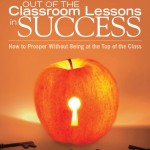 You hear it all the time as a little child, “No, you can’t do that”. As a parent, I say “no” more frequently than I say “yes”, mostly for safety reasons. As a parent it’s frustrating when your child ignores you and does something anyway. But until writing this post, I never stopped to think about whether this is a good thing to do? Will this stifle my child’s drive to reach their ambitions and dreams in the future? So I am reflecting upon those no’s that I received as a child.
You hear it all the time as a little child, “No, you can’t do that”. As a parent, I say “no” more frequently than I say “yes”, mostly for safety reasons. As a parent it’s frustrating when your child ignores you and does something anyway. But until writing this post, I never stopped to think about whether this is a good thing to do? Will this stifle my child’s drive to reach their ambitions and dreams in the future? So I am reflecting upon those no’s that I received as a child.
I have to admit, I was far less supervised than my children. Times were different. There weren’t so many child protection laws. I had three older siblings who were all attending private colleges at the same time. My parents weren’t wealthy and both had to work in order to pay the bills for three tuitions. In fact, my earliest memory of my oldest brother is the day he left for college. For the most part, I was left to myself, to do what I wanted.
My seventh birthday was my first recollection of not accepting “no”. My parents had a simple rule; I could do what I wanted as long as it didn’t cost anything. Throughout kindergarten and first grade, it seemed all my friends were having birthday parties and I wanted one too. I knew if I asked my parents would say “no”. Not to be deterred, one day I took some drawing paper and made party invitations for my classmates. I invited every girl in my class of 120 students. I handed them out at school the next day. Then I told my parents I was having a birthday party at our house and I handed them the list of things – birthday cake, party decorations, prizes – that I needed. I don’t recall them saying anything, they just did as I asked and it was a great birthday party. Of course, my parents not saying anything just encouraged me. Finally, I saw how to get what I wanted!
I went to a private school for K-8 and my parents decided that I would attend the public high school. I remember having an introductory meeting with the guidance counselor. The counselor was to advise me on what subjects to take and the academic levels for each subject. In my high school, there were 5 levels, the fifth was by invitation only and was reserved for those students thought to be promising enough to attend the top private colleges. I remember telling the counselor I wanted to be in the 5th level and the counselor saying, “No, you didn’t go to the right elementary school. You should try the 4th level”. I stood my ground. I insisted on the 5th level. I graduated 9th in a class of 700+ students and I did attend one of the top universities.
My older brothers helped me get admitted to those top universities. They came home from college during breaks and told me that straight A’s wouldn’t be enough. I had to do more. So I found the city-wide science competition. I still remember researching and devising the experiments, using the yellow pages to call around and find all the necessary supplies, and enlisting my mother’s help to drive around and get them. My science teachers had to sponsor me for the competitions. Every year they just glared at me and rolled their eyes as they signed the paperwork, but I always brought back the awards.
When I applied to colleges, I applied to engineering schools. I loved computers. They fascinated me. Personal computers were just starting to make headway into the everyday lives of the average person. It was exciting times. It turned out to be a technology that would change the way people lived. Computer Science was a new field and many colleges stuck the fledgling subject under the electrical engineering or mathematics departments. I remember an alumnus of an Ivy League school coming to my high school to speak with me. I was called to the guidance counselor’s office, the alumnus said they received my application and wanted me to change my intended major. I was bluntly told that they don’t accept girls into engineering. The alumnus suggested I try the pre-med or pre-vet programs instead. I didn’t attend that college, but did pursue engineering and computer science through both undergraduate and graduate school.
These types of incidents have continued throughout my life, and they still happen today. It doesn’t stop. What have I learned both from my reflections and from observing my daughters?
The ability to stand against the tide of no’s starts early. These won’t be the easiest kids to deal with as parents or teachers. As children, the ones that will change the “You can’t” into “Yes, I can and I will” will drive everyone around them nuts. They are uncontrollable. They are independent. They don’t give in – ever. These traits don’t just suddenly appear in adulthood.
There will always be naysayers. Until you are successful, the naysayers will vastly outnumber those that encourage you. To succeed, one must fail first and likely many times. Those naysayers will be quick to point out, “I told you so”. Once you succeed, no one remembers all those failed attempts. Once you succeed, those naysayers are quick to point out again, “I knew you could do it.”
If you can, disassociate with the naysayers. When you are constantly bombarded by people saying you can’t, your mind begins to focus on failure instead of success. Instead of planning how to achieve your dreams, you start to concentrate on contingency and risk management plans, imagining all possible failure points and what-if scenarios.
Just ignore the people who tell say, “You can’t do that”. As long as you are not trying to break the laws of science, you can.
 Cynthia Kocialski is the founder of three tech start-ups companies. In the past 15 years, she has been involved in dozens of start-ups. Cynthia writes the Start-up Entrepreneurs’ Blog www.cynthiakocialski.com.
Cynthia Kocialski is the founder of three tech start-ups companies. In the past 15 years, she has been involved in dozens of start-ups. Cynthia writes the Start-up Entrepreneurs’ Blog www.cynthiakocialski.com.
Cynthia has written the book, “Out of the Classroom Lessons in Success: How to Prosper Without Being at the Top of the Class.” The book serves up tips, insight, and wisdom to enable young adults and parents of kids to know what it will take to forge a successful career, no matter what their academic achievement.

2 comments
Yvonne
Definitely moving forward and not taking no for an answer is the only way to move forward with our dreams. Looks like a really motivating book.
gretchen
Cynthia – I think we lived similar lives. Your story of the birthday party reminds me of stuff I pulled when I was younger. My parents barely batted an eye and for that I am grateful. I think they appreciated my taking the initiative and they went along with my plans (most of the time).
I think what drove me the most to succeed was the burning question of “why?”. Whenever someone said “no” my first thought was always “why not?”. And then I proceeded to prove them wrong if I thought their reasoning was flawed.
Arguments like “they don’t accept girls into engineering” just don’t fly, do they?